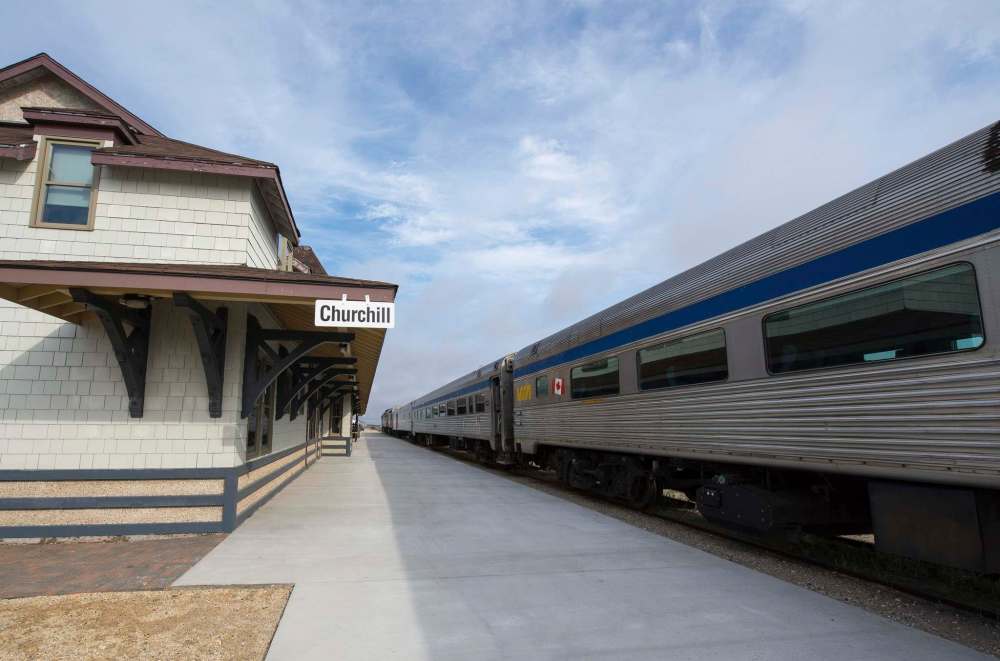Subsidy won’t lower Churchill food prices to pre-flood levels
Advertisement
Read this article for free:
or
Already have an account? Log in here »
To continue reading, please subscribe:
Monthly Digital Subscription
$0 for the first 4 weeks*
- Enjoy unlimited reading on winnipegfreepress.com
- Read the E-Edition, our digital replica newspaper
- Access News Break, our award-winning app
- Play interactive puzzles
*No charge for 4 weeks then price increases to the regular rate of $19.00 plus GST every four weeks. Offer available to new and qualified returning subscribers only. Cancel any time.
Monthly Digital Subscription
$4.75/week*
- Enjoy unlimited reading on winnipegfreepress.com
- Read the E-Edition, our digital replica newspaper
- Access News Break, our award-winning app
- Play interactive puzzles
*Billed as $19 plus GST every four weeks. Cancel any time.
To continue reading, please subscribe:
Add Free Press access to your Brandon Sun subscription for only an additional
$1 for the first 4 weeks*
*Your next subscription payment will increase by $1.00 and you will be charged $16.99 plus GST for four weeks. After four weeks, your payment will increase to $23.99 plus GST every four weeks.
Read unlimited articles for free today:
or
Already have an account? Log in here »
Hey there, time traveller!
This article was published 17/07/2017 (3062 days ago), so information in it may no longer be current.
OTTAWA — With Churchill residents hit with soaring grocery prices, the federal government says the food subsidy extended on July 7 won’t bring prices down to what residents paid before the town’s rail link flooded out eight weeks ago.
“We can’t see the subsidy at all,” said lifelong resident Georgina Oman. She’s replaced monthly treats of turkey and French toast for her grandchildren with eggs and ground beef, despite her doctor’s warning about her cholesterol.
“They say don’t fry your food, well I have to,” says Oman, her voice rising. She gets sarcastic at the suggestion of a salad. An increasing number of friends are turning to the food bank.

Omnitrax, which owns the rail line to Churchill, ended train service May 23 because of significant flood damage, leaving the community isolated without land transportation.
The federal government then included Churchill in its Nutrition North program, which absorbs some of the cost of flying perishable food like eggs, meat and cheese to communities with limited road, rail and ship access.
A spokesman for Indigenous and Northern Affairs Minster Carolyn Bennett said it may take a few weeks for the existing subsidy on shipping costs to be carried down to consumers.
But he also said the subsidy aims to keep costs from rising — not to lower them to what they were before rail service ended. “The goal is to stop them from keeping going up, to put a cap on it,” said James Fitzmorris. “[It’s] fending off what was going to be a much higher spike.”
Meanwhile, an existing provincial program to relieve Churchill’s high living costs means residents are getting less than they’d normally received from Ottawa.
The provincial government has included Churchill in its AFFIRM subsidy since its late-2015 launch, covering milk and fresh vegetables and fruits at $1.20/kilogram. Because of this, the federal government exempted those foods from Nutrition North, despite its higher $1.60/kg rate.
Neither of the flat-rate subsidies rise with shipping costs, though Derek Reimer of the North West Company says flight shipments cost three times as much as rail. He said a jug of milk that recently sold for $6.19 in Churchill now costs $12.79, even with the provincial subsidy.
Jenafor Ollander recalls paying that price this past week.
“Everybody’s really frustrated,” says Ollander, who helps run a bed-and-breakfast and the Blue Sky Expeditions sledding company.
She’s set up fishing nets to help feed her 32 sled dogs, as food subsidies don’t apply to dog food, which rose a dollar per pound this spring. After anticipating the strong U.S. dollar would yield more tourists, she seen cancellations and rising flight costs for those who don’t qualify for family rates.
“The airfares have been exorbitantly expensive,” says Ollander. She’s seen the local population drop since she arrived in 2002, and she worries rising transport costs will restrict tourism to the elite.
With her dogs frozen out of the subsidy, Ollander says governments should instead focus on a permanent solution for getting people and goods to the north, even if fixing the rail line takes a year. “It’s been so unreliable for so long; we need to have a reliable form of transportation here.”
On Monday, the Free Press revealed that Omnitrax won’t start repairs until it finishes its assessment in two to three weeks. The federal government has issued vague statements about whether it would help fund a First Nations group that wants to take over the track.
When asked what it’s done so far for Churchill, the office of federal Transport Minister Marc Garneau said Monday it’s started two intergovernmental groups to keep track of food and fuel re-supply for Churchill.
“We continue to monitor the situation as the company awaits the engineering report. Until that report is completed, we cannot speculate on what repairs may be needed,” wrote Delphine Denis.
The provincial government had a similar statement. “We continue to pressure Omnitrax to disclose their assessment of damages to the rail line and its anticipated costs and timeline for repairs,” wrote Olivia Billson.
That’s little comfort for Oman, the grandmother whose taking risks with her cholesterol issues. She wants the government to take over the rail line and fix it, so she can resume visiting relatives in Gillam and Thompson to bring back cheaper groceries.
“Omnitrax is holding us hostage,” she says. “Now they’ve got us where they want us to be. They want to control us, because then the government will give them more money.”
dylan.robertson@freepress.mb.ca






